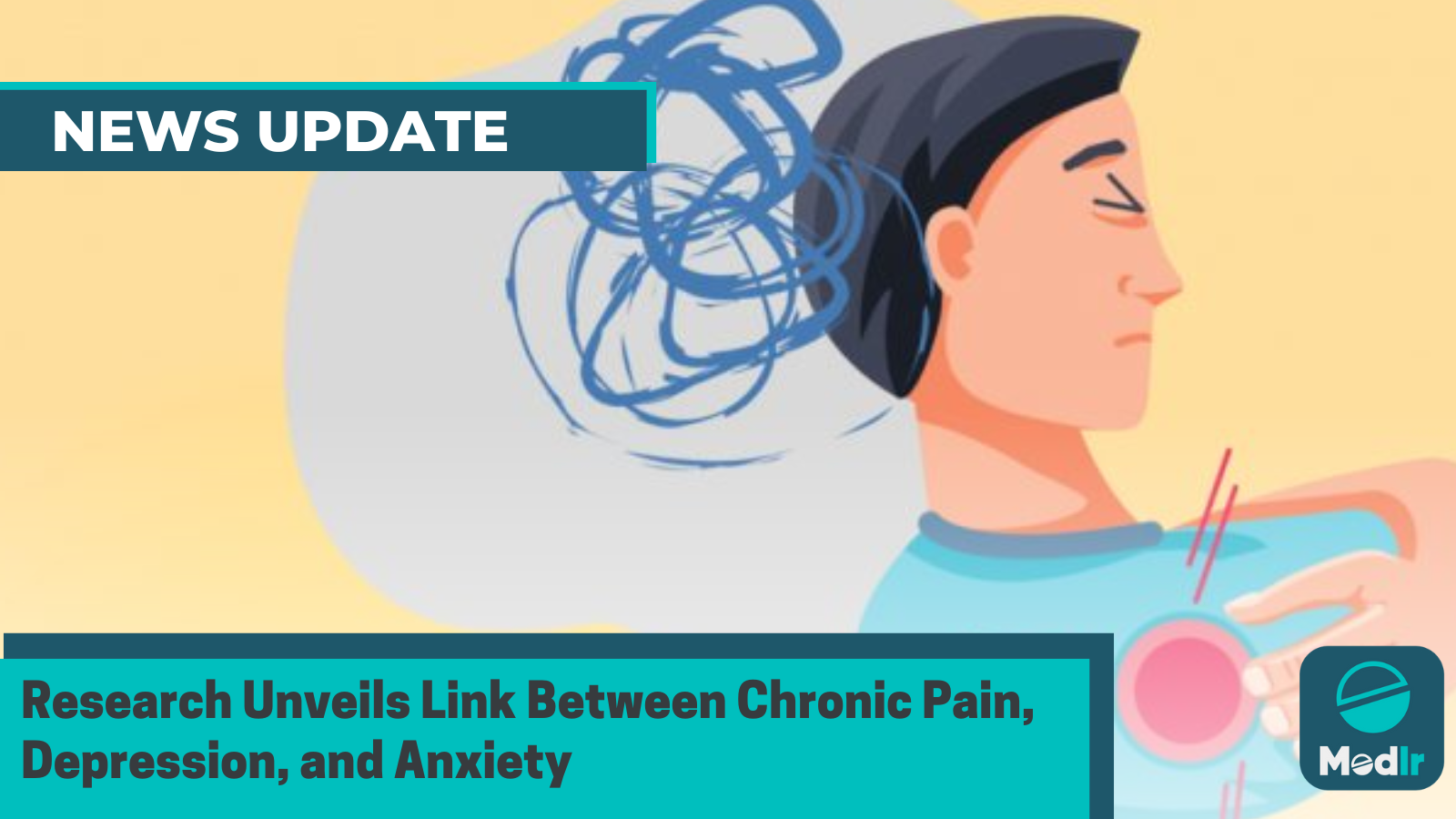Research Unveils Link Between Chronic Pain, Depression, and Anxiety
Written by Jaskiran Walia, Arushi Sharma
Recent research has brought to light a profound and intricate link between chronic pain, depression, and anxiety.

In a study, the significant link between anxiety, depression, and chronic pain is examined. It emphasizes the link between pain and typical mental health issues as well as the significance of recognizing psychological symptoms in pain patients. Kurt Kroenke, M.D., of the Regenstrief Institute and Indiana University School of Medicine wrote the commentary, which is published in JAMA Network Open.
Dr. Kurt Kroenke said -
“One of the reasons for the bi-directional linkage between pain and depression, as well as anxiety, is the existence of a feedback loop. Individuals with pain don't sleep well and their resulting tiredness affects their mood, making them vulnerable to depression and anxiety. Having problems with depression or anxiety can increase susceptibility to pain.
Also, areas in the brain that affect the pain that people experience are connected with areas that regulate mood, making physical and mental symptoms closely associated.”
Acknowledging the link between pain relief and addressing depression/anxiety, he emphasizes the importance of identifying/treating both physical and psychological issues. Dr Kroenke further added -
“Symptoms of the body and the mind are frequent fellow travelers. But patients seeing their primary care physician for a headache, back or muscle or leg pain or stomachache often neglect to mention the symptoms commonly associated with depression and anxiety that they are also experiencing such as fatigue, lack of motivation, nervousness and moodiness. And physicians don’t always ask about symptoms beyond the ones which brought the patient into the office.
Un- or under-treated, these emotional symptoms can cause long-term suffering and impaired quality of life. If clinicians measure and monitor both physical and mental symptoms they will be more able and likely to treat them. But there is no blood pressure cuff, lab test or X-ray for symptoms. We don’t have a way to measure symptoms other than from what the patient tells us, yet screening and diagnosis are crucial to improving patient outcomes.”
Dr. Kroenke, a pioneer in symptomology, developed widely-used scales (e.g., PEG, PHQ-9) translated into 100+ languages, highlighting the significance of addressing physical and psychological symptoms.